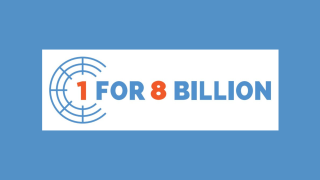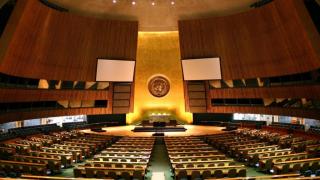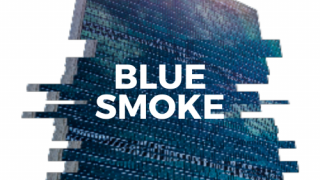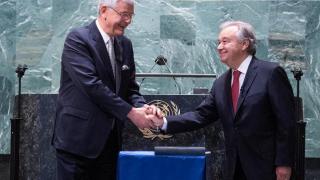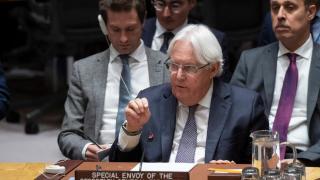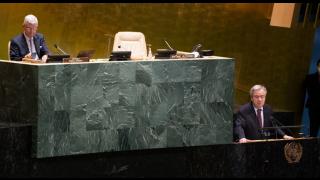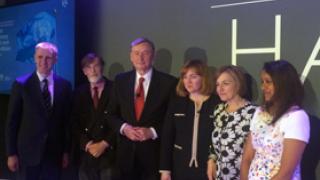
This analysis by UNA-UK's Executive Director, Natalie Samarasinghe, was quoted in an article by Devex on 18 April 2016
UNA-UK and our 1 for 7 Billion campaign were delighted to see UN Secretary-General candidates take part in the first-ever hearings for this important job. Our campaign has pushed for an open, inclusive and merit-based selection process, with opportunities for candidates to engage with all UN member states and the wider public. We are wholly focussed on improving the process and while we will cover developments as they unfold, we will not be endorsing any candidate.
Topics under discussion
During these historic sessions, candidates collectively answered some 800 questions and – despite some repetition – the breadth of issues covered was considerable. Thematic and institutional questions outnumbered those on specific countries, and those that were raised - notably on Israel-Palestine - elicited fairly formulaic answers, with candidates wary of upsetting future taskmasters. Answers (or lack thereof) on issues such as Ukraine and LGBTI rights are likely to have raised eyebrows.
The highlights
We were delighted that states from around the world raised the possibility of a single longer term of office for the next Secretary-General. This is a crucial part of our 1 for 7 Billion campaign, which is not only concerned with finding the best possible person for the job but making sure they can work effectively once appointed. We believe there is no point in selecting a good person if she or he then spends five years tip-toeing around powerful states, who dominate the process of re-appointment. Click here to read 1 for 7 Billion's policy paper on this issue.
We were also pleased that the sessions considered the qualities and qualifications for the post. At least some of the questions sought to get to the heart of what a good Secretary-General could achieve by using her or his “good offices” and Article 99 of the UN Charter, which gives Secretaries-General the power to refer situations to the Security Council. It was especially encouraging to hear several states speak about the need for a strong Secretary-General, who acts with independence and integrity. Surveys carried out by 1 for 7 Billion and our partners show that civil society, UN staff and the wider public want a Secretary-General who can speak truth to power.
It was also good to have questions on improving accountability, transparency and civil society participation in the UN’s work, as well as specific questions on campaign finances and whistleblowing during the media stake-outs.
What was missing?
Given how prominently the Sustainable Development Goals (SDGs) featured, it was surprising how little attention was given to reforming the UN development system. Ditto humanitarian system reform, despite next month’s World Humanitarian summit and the interesting ideas in Secretary-General Ban Ki-moon’s 'One Humanity' report, not to mention the urgent need to address multiple crises around the world.
It was also disappointing that some states used the dialogues to push their own agendas, especially in areas where the Secretary-General has little or no room for manouevre. The repeat question by the 'G4' (Brazil, Germany, India and Japan) on Security Council enlargement is a case in point.
More emphasis on examples, concrete proposals and previous experience would have been helpful. This improved over the course of the sessions but states might do well next time to approach this more like a job interview and less like a speaker event. That said, it was refreshing to witness discussion of broader, existential questions about the relevance and functioning of the UN.
Plans for gender parity
It was encouraging to see candidates place emphasis on gender parity within the UN system – no doubt male candidates were advised to head off criticism in light of the push for a female Secretary-General.
However, ideas for improving gender equality in the world outside UN walls were fairly thin. By and large, candidates missed the opportunity to give us a taste of how they would use the Secretary-General’s toolbox – moral authority, convening power, etc. – to further an issue such as women’s sexual and reproductive health and rights. Personally, I would have liked them all to say they’re feminists.
On the plans themselves, those that struck a balance between ambitious results and how (quickly) they can be achieved were probably the most convincing. But in my opinion, no candidate sufficiently covered all the bases, from improving processes within the Secretary-General’s purview, to concrete steps to encourage states to put forward female candidates, to the progress needed in terms of working conditions, staff development, performance appraisals and organisational targets.
High expectations
It was frustrating that many states asked about things that the Secretary-General has little power to address. Candidates who found the middle ground between saying “it’s up to member states” and over-promising probably came off quite well.
One candidate described independence as an “attitude”, probably surmising, quite rightly, that despite the warm (and in some cases genuine) words about a strong Secretary-General, the next postholder is unlikely to be given more powers – unless the growing number of states that support a single term succeed.
Clearly many states saw these sessions as opportunities to reach a wide audience, and to raise issues that rarely get an airing in such an open and (relatively) protocol-free forum. The politics of senior appointments is one example – something that 1 for 7 Billion has consistently raised in relation to the convention of 'regional rotation' and the pressures exerted by powerful states to secure key positions.
This is a symptom of a much larger problem. Many states feel sidelined by powerful states at the UN, particularly the five permanent members of the Security Council. With other UN reform efforts stagnating, a lot of them saw the selection process as a way to revitalise the General Assembly and to restore some of the balance intended by the Charter, which states that the appointment is made by the Assembly on the recommendation of the Council.
Getting to know the candidates
Given the time and format constraints, style was as likely as substance, if not more, to provide clues on candidates' characters. Were candidates formal or relaxed? To what extent did they engage with questioners? Did they treat questions differently if they came from particular states, groups of states, or civil society? Did they show nuance and imagination? Did they keep to time? Did they avoid any questions?
That said, it took a different format for personalities to really shine. On 13 April, UNA-UK hosted a candidate debate with the Guardian, FUNDS and New America, with a full house of journalists, NGOs, 'ordinary' people and even some states.
The informal setting enabled candidates to relax. There were lots of laughs - including a reference to "making the UN great again" - and candidates dared to differ on positions. The audience got to draw comparisons and push candidates on things they’d said in their UN sessions.
A more inclusive process
In the past, the best tactic for candidates was to remain in the background, engaging quietly with powerful states and giving little away to the wider UN membership and public. This time, candidates will need to appeal to this broader constituency too.
It is a tricky balancing act. Many UN member states believe the Secretary-General is an administrator, no more. Civil society, meanwhile, wants someone more inspirational. The dialogues were a good test of candidates’ ability to navigate this challenge. Hopefully, the public nature of the process will provide some form of vetting, helping to avoid Waldheim-like skeletons, which would be much more damaging in today’s media culture.
The President of the General Assembly deserves a huge amount of praise for his handling of the dialogues, not least the civil society questions and webcasting. I’m sure that he and member states will have ideas on how the process could be improved, for example, by giving candidates the floor after, say, five questions, to ensure that all are answered.
Taken together, the sessions, stake-outs, vision statements and external events mean that those of us on the outside can get a decent impression of candidates’ style and stance. We have gone from not really knowing who’s in the running to having a wealth of opportunities for engagement, online or in person.
Of course, the selection will still ultimately be driven by the P5, but they won’t be able to ignore what happens in these candidate sessions, especially any bad performances. So I think the new process has raised the cost of making a poor appointment. There is risk that we end up with a Secretary-General who merely seems strong in public. But, as one candidate put it during a civil society event, the greater the emphasis on independence during the process, the more scope it gives the next postholder to act once appointed.
Photo: The candidates with UNA-UK's Executive Director, Natalie Samarasinghe (far right), and FUNDS co-Director Thomas G. Weiss (2nd from left). Credit: FUNDS

